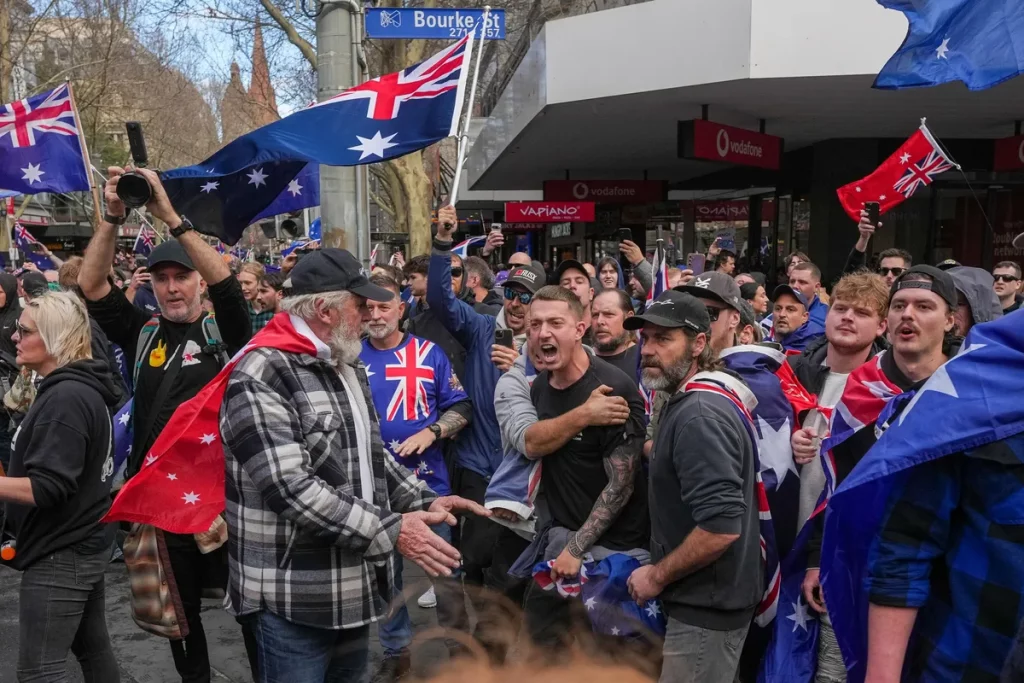Prime Minister Anthony Albanese has asked Australians to remain calm and respectful after anti-migrant protests took place in major cities over the weekend. He played down the number of people involved, saying they were small compared to the country’s population, but warned that the presence of Neo-Nazis at some rallies was a serious concern.
Speaking on ABC television, Albanese explained that anti-immigration protests have always existed in Australia, but the country must not allow hate groups to gain influence. He noted that while the demonstrations were not large, the involvement of Neo-Nazi speakers at rallies in cities like Melbourne and Sydney was alarming. Some of them used racist slogans such as “hail White Australia,” which reminded many people of the country’s painful past with racism.
In Melbourne, tensions escalated when a group of men attacked an Indigenous protest site. Many critics pointed out the irony of people protesting against immigration while also targeting Australia’s First Nations people, the original inhabitants of the land. This highlighted the contradictions and dangers of such extremist movements.
Albanese strongly condemned the rallies, saying it was unacceptable for Neo-Nazis to be given a public platform, especially in front of a state parliament building. He stressed that some of the speeches were openly hateful, and this kind of behavior does not reflect modern Australia.
The Prime Minister also reminded Australians of their history. For many years, the country’s immigration laws favored white Europeans, and racism has remained an issue even after those policies ended in 1973. Over time, far-right groups such as “Reclaim Australia” have staged marches, and in 2005 the Cronulla riots showed how quickly racial tensions could explode when white crowds attacked Lebanese Australians.
Today, new pressures such as the housing crisis and rising living costs have fueled anxiety about migration. Some people blame migrants for shortages of housing and jobs, but experts argue that migrants have played a key role in building the economy and society. Almost one in three Australians was born overseas, and nearly half have at least one parent who was born outside the country. The United Kingdom, India, China, and New Zealand remain the top source countries for migrants.
Albanese highlighted the positive impact of diversity in Australia, saying the country is stronger because of its multicultural society. He praised the harmony that exists among people of different backgrounds, faiths, and cultures. According to him, the country is enriched by migration, not threatened by it.
The Prime Minister concluded by urging Australians to reject hate and division. He said that respect for one another must remain a guiding principle, even when economic or social challenges arise. “We are a modern nation that has benefited from multiculturalism,” he said. “There will always be people who try to use race as an excuse for bigger problems, but we must not let them divide us.”

